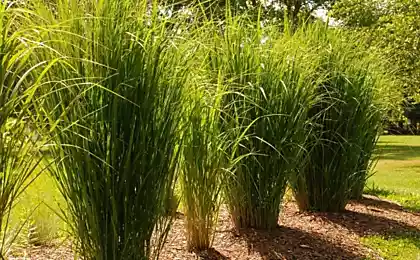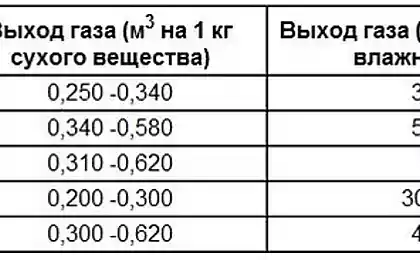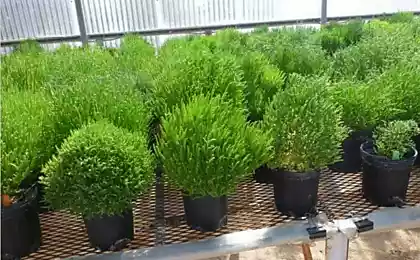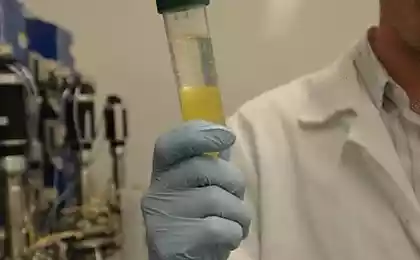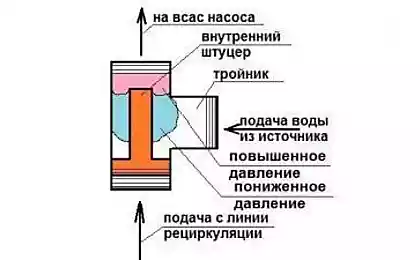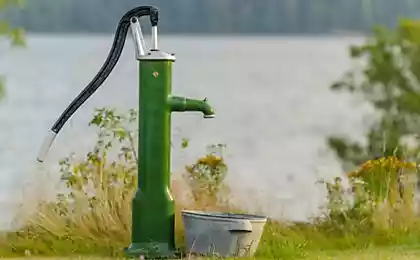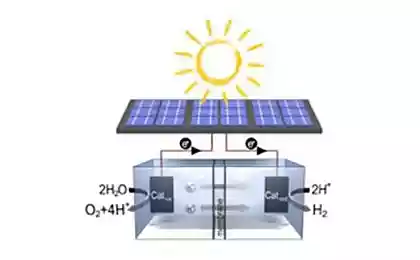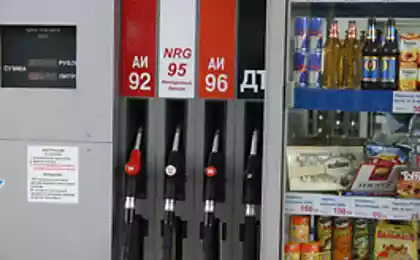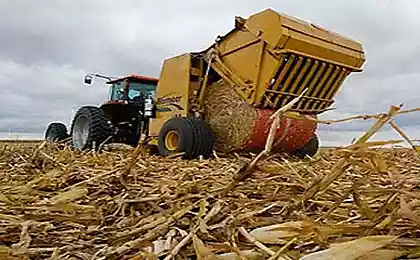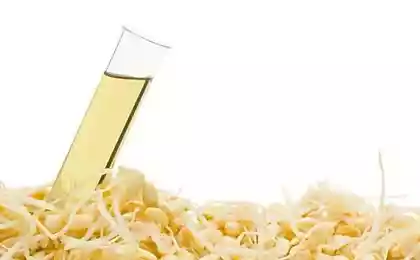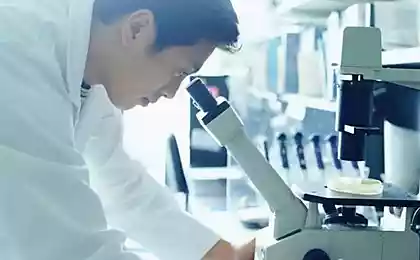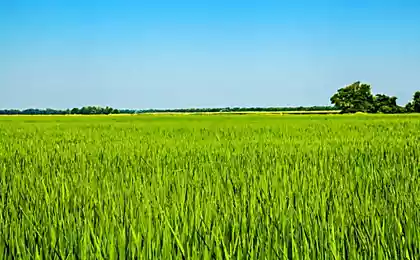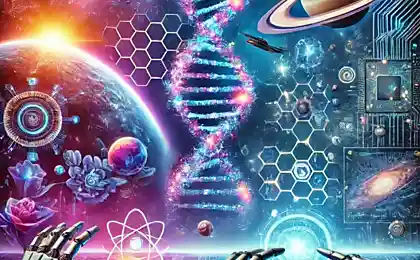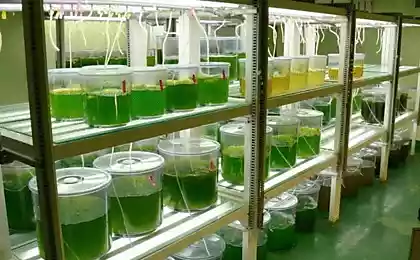378
Reverse photosynthesis produces biofuels
Photosynthesis, as we all know, is a vital process. It is the process by which plants, algae and other organisms convert sunlight into chemical energy.
Scientists from the University of Copenhagen say they have learned to produce the reverse of photosynthesis – use sunlight to biomass conversion plants into usable fuel.
This process can radically change the industrial production of plastics and chemicals, the researchers say.
The method works as follows: a certain amount of biomass, e.g., straw or wood, is connected to the enzyme called lytic polysaccharide monooxygenase found in some types of fungi and bacteria.
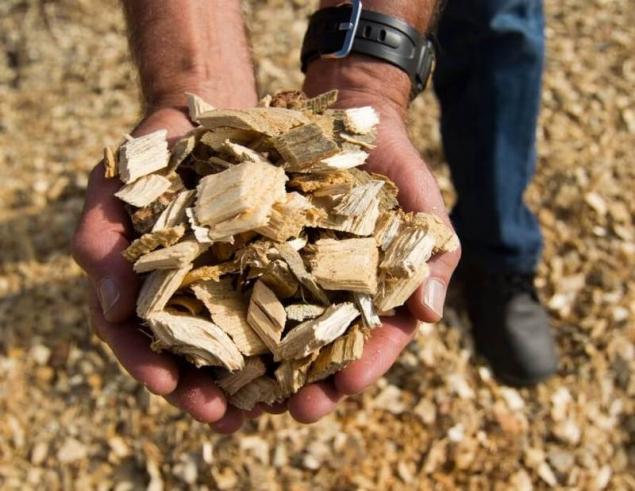
After adding the whole mixture is chlorophyll is exposed to sunlight, while the sugar molecules in biomass, in fact, disintegrate into smaller components. The result of the biochemicals that can be easily converted into fuel and plastic.
The key point is the use of energy from the solar light to carry out chemical processes. Through the use of solar energy, the reactions which could take 24 hours or more can be produced in just 10 minutes, according to the researchers.
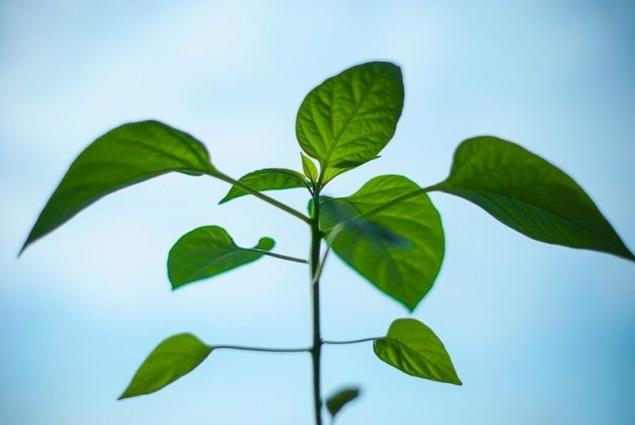
This means faster production, lower temperatures and increased efficiency of energy use in industrial production.
"This method has always been right under our noses, but no one ever noticed," says lead researcher Klaus Falbe (Claus Felby).
"Photosynthesis allows all living things to grow, the same principle can be applied to the destruction of vegetable substances, which allows you to release chemical substance. Great energy from sunlight can be used in such a way that the processes can occur without additional external energy," said the scientist.
The team of the University of Copenhagen is quite optimistic about his project, anyway, they say that the potential of the technology is promising among other methods they've seen in recent years: "This factor changes the rules of the game can change, the industrial production of fuels and chemicals". published
P. S. And remember, only by changing their consumption — together we change the world! ©
Join us in Facebook , Vkontakte, Odnoklassniki
Source: facepla.net/the-news/tech-news-mnu/5435-%D0%BE%D0%B1%D1%80%D0%B0%D1%82%D0%BD%D1%8B%D0%B9-%D1%84%D0%BE%D1%82%D0%BE%D1%81%D0%B8%D0%BD%D1%82%D0%B5%D0%B7.html
Scientists from the University of Copenhagen say they have learned to produce the reverse of photosynthesis – use sunlight to biomass conversion plants into usable fuel.
This process can radically change the industrial production of plastics and chemicals, the researchers say.
The method works as follows: a certain amount of biomass, e.g., straw or wood, is connected to the enzyme called lytic polysaccharide monooxygenase found in some types of fungi and bacteria.

After adding the whole mixture is chlorophyll is exposed to sunlight, while the sugar molecules in biomass, in fact, disintegrate into smaller components. The result of the biochemicals that can be easily converted into fuel and plastic.
The key point is the use of energy from the solar light to carry out chemical processes. Through the use of solar energy, the reactions which could take 24 hours or more can be produced in just 10 minutes, according to the researchers.

This means faster production, lower temperatures and increased efficiency of energy use in industrial production.
"This method has always been right under our noses, but no one ever noticed," says lead researcher Klaus Falbe (Claus Felby).
"Photosynthesis allows all living things to grow, the same principle can be applied to the destruction of vegetable substances, which allows you to release chemical substance. Great energy from sunlight can be used in such a way that the processes can occur without additional external energy," said the scientist.
The team of the University of Copenhagen is quite optimistic about his project, anyway, they say that the potential of the technology is promising among other methods they've seen in recent years: "This factor changes the rules of the game can change, the industrial production of fuels and chemicals". published
P. S. And remember, only by changing their consumption — together we change the world! ©
Join us in Facebook , Vkontakte, Odnoklassniki
Source: facepla.net/the-news/tech-news-mnu/5435-%D0%BE%D0%B1%D1%80%D0%B0%D1%82%D0%BD%D1%8B%D0%B9-%D1%84%D0%BE%D1%82%D0%BE%D1%81%D0%B8%D0%BD%D1%82%D0%B5%D0%B7.html
Baked eggplant with pepper sauce
BOREDOM — the main problem of the generation of children's entertainers
